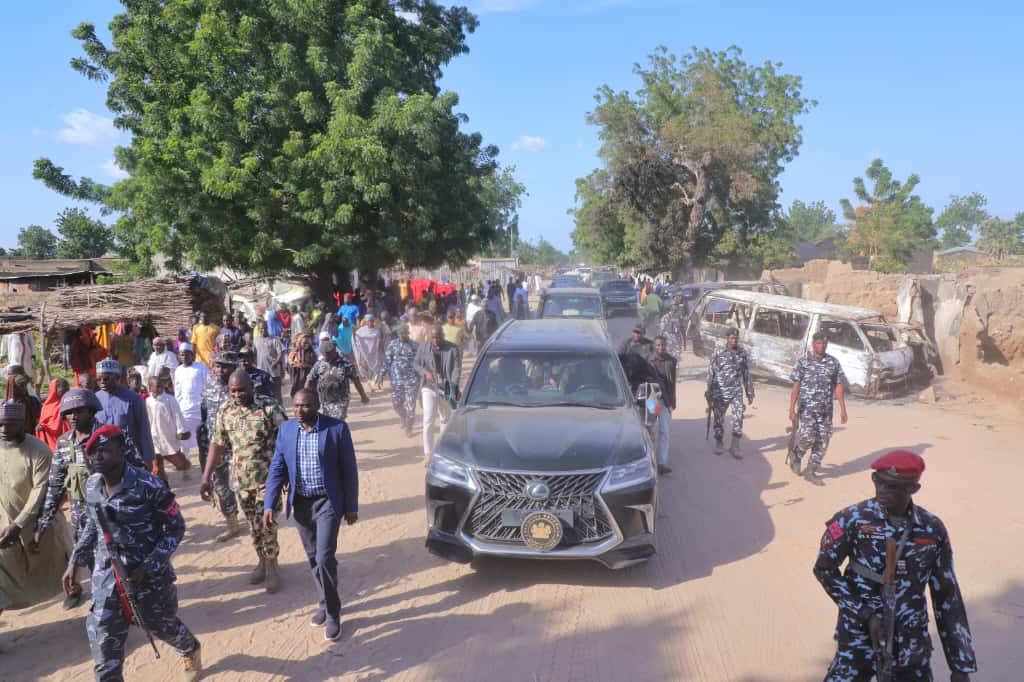
Iliyasu Abdullahi Bah
Borno State Governor, Babagana Zulum, has issued a grave warning about the potential fall of Gwoza and surrounding communities to insurgents, following the withdrawal of Cameroonian military forces from key border areas. The governors alert comes after a devastating attack on the border town of Kirawa this past Wednesday, where Boko Haram insurgents killed two civilians, burned over 50 homes, and destroyed eight vehicles along with heavy duty equipment.
During a condolence visit to the devastated community, Governor Zulum expressed profound concern over the security vacuum created by the departure of Cameroonian troops. He revealed that his administration had successfully resettled displaced residents in Kirawa seven years earlier with the crucial support of these international forces, making the recent setback particularly disheartening.
“While we acknowledge the Cameroonian troops have withdrawn, this should not translate to the Nigerian Army abandoning such a strategic area,” Governor Zulum stated emphatically. “This is a critical border community, and I had previously warned about the dangers of leaving it without adequate security cover. Regrettably, these concerns did not receive the urgent attention they required.”
The governor specifically identified several strategic border towns including Wilgo, Kirawa, Baga, Damasak, and Malamfatori as requiring immediate and sustained military protection to prevent further insurgent advances.
He disclosed that he has already engaged in high-level meetings with the Theatre Commander of Operation Hadin Kai and the Multinational Joint Task Force MNJTF, resulting in agreements for imminent redeployment of Nigerian troops to Kirawa.
Governor Zulum outlined a comprehensive security strategy that includes equipping and strengthening the Civilian JTF and local vigilante groups, alongside integrating modern surveillance technology to enhance security monitoring capabilities. He appealed to residents to maintain courage and resilience, emphasizing that coordinated community resistance could prevent Boko Haram from overrunning entire settlements.
The governor delivered a pointed message to military leadership, stressing that operational success depends more on commitment than numerical strength. “The crucial factor is not the number of deployed soldiers, but their determination to engage and repel attackers,” Zulum asserted. “We require sustained military operations rather than sporadic responses, as seasonal security actions create opportunities for insurgents to regroup and rearm.”
Governor Zulum further appealed directly to the Federal Government and the Chief of Defence Staff to release essential funding for equipment procurement and continuous operations, particularly as the rainy season concludes, a period historically exploited by insurgents for renewed attacks.
The governor concluded with a stark warning about the potential effect of failing to secure Kirawa, noting that such failure could trigger new displacement crises in Pulka, Ngoshe, and ultimately Gwoza town itself, potentially severing major transportation routes. “Kirawa remained resilient even during the peak of the crisis seven years ago. There is absolutely no justification for its collapse now, when overall security conditions have significantly improved,” Zulum emphasised.
